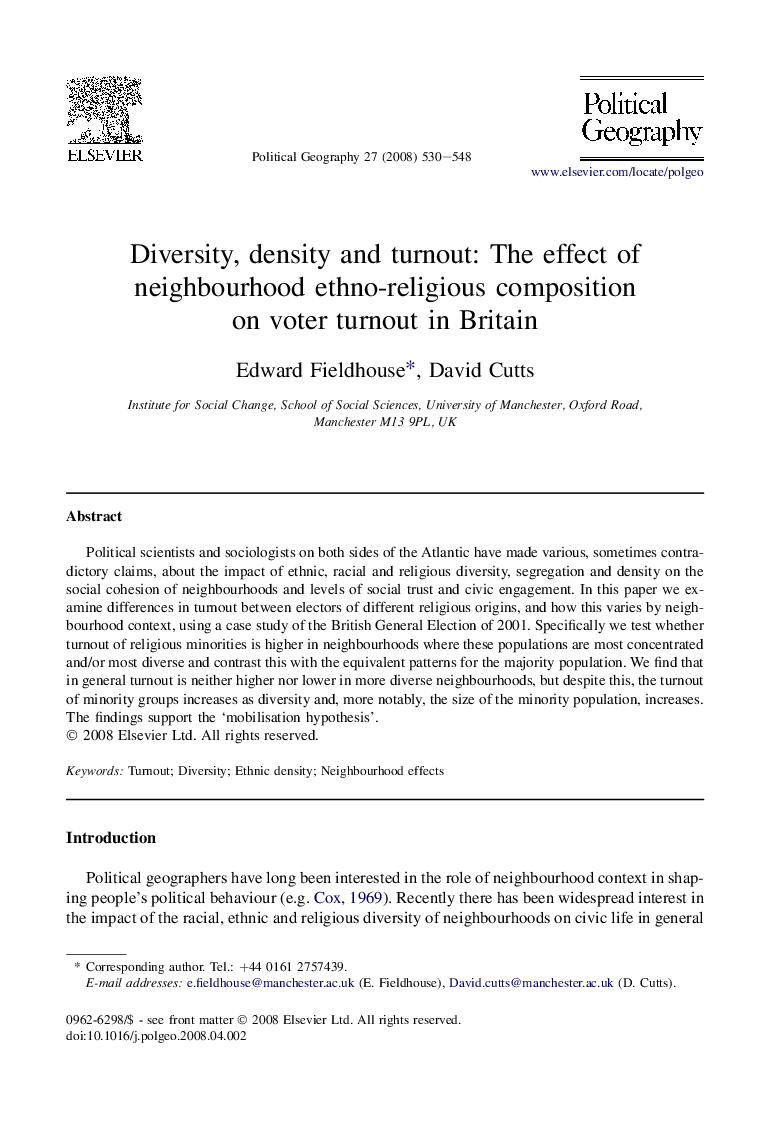| Article ID | Journal | Published Year | Pages | File Type |
|---|---|---|---|---|
| 1062307 | Political Geography | 2008 | 19 Pages |
Political scientists and sociologists on both sides of the Atlantic have made various, sometimes contradictory claims, about the impact of ethnic, racial and religious diversity, segregation and density on the social cohesion of neighbourhoods and levels of social trust and civic engagement. In this paper we examine differences in turnout between electors of different religious origins, and how this varies by neighbourhood context, using a case study of the British General Election of 2001. Specifically we test whether turnout of religious minorities is higher in neighbourhoods where these populations are most concentrated and/or most diverse and contrast this with the equivalent patterns for the majority population. We find that in general turnout is neither higher nor lower in more diverse neighbourhoods, but despite this, the turnout of minority groups increases as diversity and, more notably, the size of the minority population, increases. The findings support the ‘mobilisation hypothesis’.
